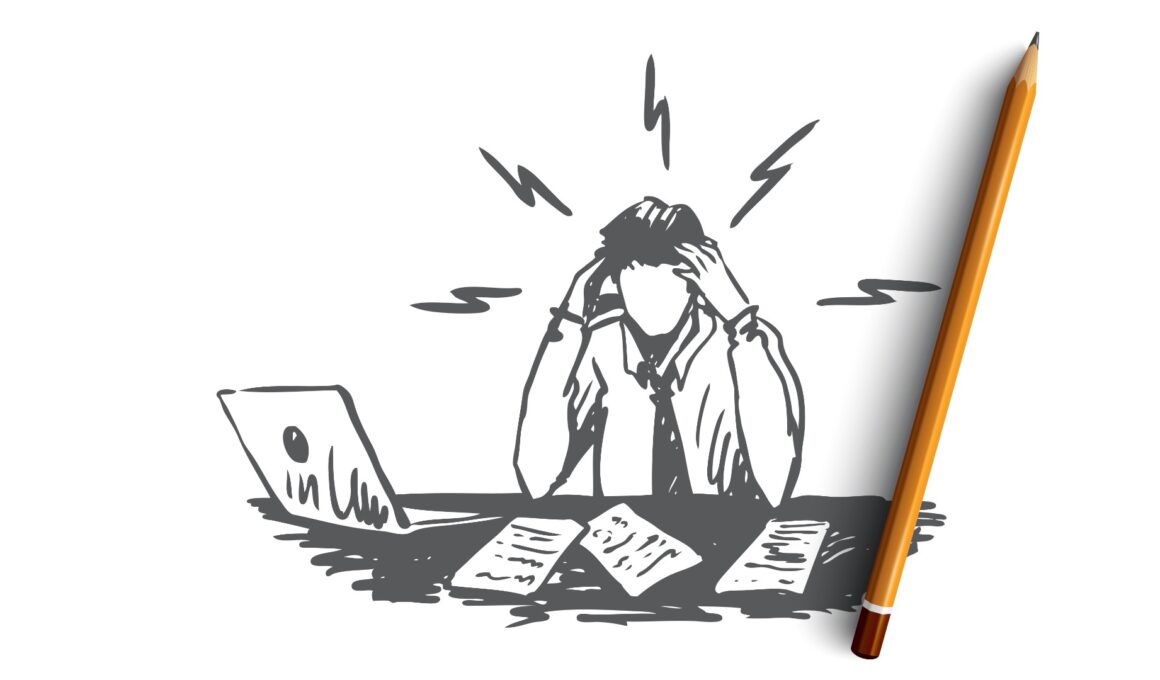One of the biggest ironies of stress is that we don’t always realize that we’re experiencing it. Sometimes life gets so on top of you and you feel so constantly overworked and overstretched that you don’t even have time to stop and to assess your own mental state. At this point you can find that stress ends up building up to a large degree and you don’t even realize it’s happening. It’s only when you stop to think about everything you’re going through and when you analyze the symptoms that you realize you’re feeling stressed.
For this reason a stress symptoms checklist can be very useful. Keep note of these different symptoms and you can then be much better able to identify a bout of stress when it occurs. And knowing that you are stressed is important as it will provide you with the first step towards treating and dealing with it.
Read on for your complete stress symptoms checklist…
Stress Symptoms Checklist
Anxious thoughts
We should start this stress symptoms checklist with the most important and prevalent of all the stress symptoms – which would be anxious thoughts. When you are anxious you will find yourself ruminating on the things you are worried about which may or may not also be illogical.
Difficulty sleeping
If you are stressed then you will find that your mind races and this can make it harder for you to sleep.
Increased appetite
An increase in the stress hormone cortisol can also cause an increase in appetite.
Weight gain
Similarly cortisol can also cause weight gain as it causes sugar to be more easily stored as fat.
Weight loss
That said though, stress can also cause similar symptoms to depression reducing your interest in things and causing you to lose your appetite leading to weight loss. Perhaps a better item for a stress symptoms checklist then would be ‘unusual weight change’.
Lack of interest
When we are stressed we often find that it seems to consume our thoughts and we’re unable to relax or to enjoy anything else. This can then lead to a lack of interest in things that you would otherwise find exciting or interesting and in turn that can cause you to engage less with other people and activities.
Tiredness
Chronic stress is stress that goes on for a long time. If you have stress for too long then it means your body will be producing stress hormones such as cortisol, adrenaline and norepinephrine for a long time too. There’s only so long that this can go on for though and eventually this can lead to adrenal fatigue – making you feel exhausted.
Depression
Stress and depression are correlated and one can often lead to the other. If you are suffering with low mood, then it may be that you’re depressed.
Irritability
Likewise though when you’re stressed you’re also more likely to find yourself shouting at friends and family members unfairly or just generally ‘grumping’. Hormonal changes associated with stress often lead to irritability.
Muscle tension
It can be hard to tell if your muscles are tensed but this is one of the effects that stress has on the body as part of the fight or flight response.
Jaw grinding
If you’re struggling to tell if you have muscle tension, then an easier item on a stress symptoms checklist would be jaw grinding or ‘TMJ’ (temporomandibular jaw disorder) which you’ll experience as jaw pain.
Biting your lip
For similar reasons to jaw grinding, you may also bite your lips or your hands.
Tinnitus
Hearing a phantom noise in your ear, often in the form of a high pitched ringing, can also be a common symptom of stress. The reason for this is that when we are stressed and producing more cortisol, it causes all of our neurons to become more sensitive and more likely to fire. This can actually result in ‘false positives’ causing our hearing nerves to fire as though there was sound, even when there actually is none. Tension in the ears meanwhile can also cause a popping noise.
Suppressed immune system
You might also find yourself getting ill more often which is one of the most serious things to consider on a stress symptoms checklist. The problem here is that when you’re very stressed, your immune system becomes suppressed in order to allow more energy to be used in other areas.
Irregular bowl movements
IBS – irritable bowel syndrome – is closely linked with stress. In fact, our emotions often regulate our bowl movements and our urination which of course is the result of hormones affecting the stomach.
Headache
Most likely due to the extra muscle tension, stress can often cause headaches.
Difficulty breathing
When you are very stressed, then tension can end up making it harder to breathe. This might be noticeable on a stress symptoms checklist as constant sighing and heavy breathing.
Panic Attacks
If you work yourself up too much, this can lead to panic attacks which will often feel almost like heart attacks at first.
Heightened blood pressure and heart rate
This is one of the direct effects of adrenaline and norepinephrine. Blood pressure is raised by the increase in heart rate but also by the thickening of the blood which occurs so that it will be more likely to clot in the case of an injury. Of course this can be very unhealthy when it’s allowed to continue for sustained periods of time.
Sweating
This too is associated with the fight or flight response – which you’ll be familiar with if you’ve ever been nervous in an interview and ended up with wet palms.
Nightmares
If you’re very stressed then this can often end up coming to ‘the surface’ in the form of nightmares.




